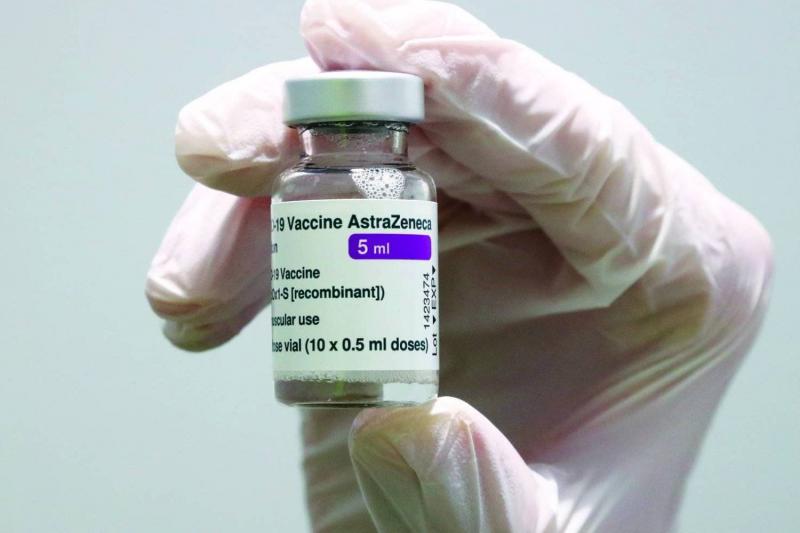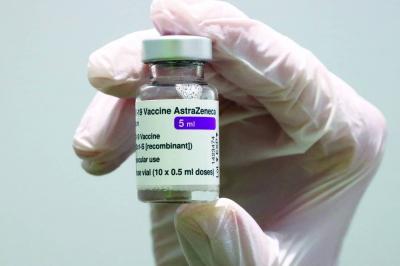AstraZeneca has distributed over 3 billion doses of its vaccine, Vaxzevria, around the world. The acknowledgment by AstraZeneca of the vaccine’s side effects has caused panic, prompting health systems in several countries to issue statements to reassure vaccinated citizens. Among these was the Egyptian Ministry of Health, which clarified that blood clots as a side effect of vaccinations are "rare and have been known since 2021, with an incidence of 3 cases per million vaccinated individuals."
**Necessary Steps**
Dr. William Schaffner, a professor of preventive medicine at Vanderbilt University, reassured individuals who received the AstraZeneca vaccine. He stated that "the serious and rare side effect, namely blood clots and decreased platelet counts, occurs only during the month following vaccination," adding that "there is no need for concern now as enough time has passed since vaccination." He advised that if a person recently vaccinated experiences symptoms such as headaches, abdominal pain, or any signs of bleeding, they should contact their doctor immediately and inform them about receiving the vaccine.
Blood clots can impede blood flow in specific areas of the body such as the brain or abdomen. Symptoms may include severe or persistent headaches, blurred vision, shortness of breath, chest pain, swelling in the leg, or persistent abdominal pain, and these can appear between 4 to 42 days after vaccination. According to the U.S. Centers for Disease Control and Prevention (CDC), this condition is classified based on the location of the blood clot and severity of symptoms.
Dr. Katherine Bennett, head of the epidemiology department at Deakin University in Australia, indicated that serious and very rare side effects of the AstraZeneca vaccine, such as blood clots and decreased platelet counts, occurred among vaccinated individuals during the first days or weeks after vaccination. Thus, there is no need for concern for those vaccinated a long time ago, months or years after their last dose.
She added to "Asharq Al-Awsat" that AstraZeneca's vaccine was not adapted for new variants of the COVID-19 virus; thus it was withdrawn from use in Australia in March 2023. Despite lawsuits against the company, “no new information regarding this matter has emerged during court proceedings.”
**Immunity Levels**
Bennett pointed out that very rare side effects of drugs and vaccines may not be observed in initial trials. However, even when discovered, it is unusual for a product to be withdrawn if the health risks from not using it are significantly greater than the rare risks of reactions. By early 2022, after millions of doses were administered, rare reactions related to blood clotting had become apparent, but the health risks from contracting the Delta variant were much higher.
Bennett highlighted that "most of the world's population now has a certain level of immunity against COVID-19, either through infection or vaccination. Therefore, the risk calculations and decisions based upon them are changing, so there is no need to fear any risks or potential effects in the future." She specified that in Australia, for example, it is no longer recommended to receive regular booster doses of any type of COVID-19 vaccine.
In the same context, Dr. Islam Anan, a professor of health economics and epidemiology at "Misr International University," indicated that "there is now no specific action that people who have been vaccinated in the past can take because serious side effects from vaccines only emerge shortly after vaccination, not after a year or two." He urged those vaccinated to "trust the scientific evaluations and official approvals given to vaccines, as these processes are conducted meticulously," emphasizing the need not to fear vaccines in general, not just COVID-19 vaccines. He added that "every vaccine approved by global drug agencies undergoes meticulous risk-benefit evaluations." Anan explained that amid the pandemic, it was shown that the benefits of vaccines greatly outweigh the rare risks; thus, these agencies have confirmed that vaccines, including AstraZeneca, are safe for general use despite rare potential side effects.
**Rare Effects**
Dr. Magdy Badran, a member of the Egyptian Society of Allergy and Immunology and the World Allergy Organization, confirmed that the AstraZeneca vaccine was generally effective and safe during its use. The severe side effects that generated considerable controversy were extremely rare, comprising decreased platelet counts or the occurrence of clots, which happen at a rate of one case for every more than 10,000 vaccinated individuals. Badran clarified that vaccine side effects usually appear during vaccination, specifically within 6 hours to 3 days of receiving the vaccine, so there is no need for panic now. If someone did not have side effects then, they will not appear now, thus there is no need to fear symptoms emerging in the future." He noted that doctors can easily diagnose decreased platelet counts through a blood sample analysis and intervene medically if needed.
Aside from serious side effects, Badran indicated that there are common symptoms that occur after vaccination, such as pain, itching, warmth, chills, fever, headaches, nausea, and fatigue, affecting one in every ten people. These symptoms can be treated with pain relievers like paracetamol and appear within 6 hours, subsiding within two days. There are also less common symptoms that occur in one in more than ten people, such as swelling and redness at the injection site, vomiting, diarrhea, elevated temperature, and migraines, which disappear within three days of vaccination.
To avoid side effects from vaccinations, Badran emphasized "the necessity for healthcare providers to respect the complaints of vaccinated individuals, monitor them after vaccination, and provide enduring communication channels between doctors and recipients to offer necessary treatments and avoid complications." He also pointed out that healthcare providers should explain expected side effects to patients to obtain informed consent for vaccination and should not allow patients to leave the vaccination site until their health status has been confirmed, ensuring that no one leaves the vaccination place until two hours have passed.




